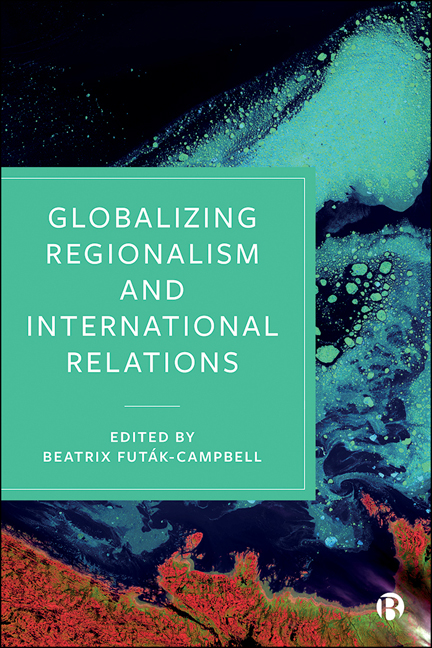1 - Introduction: Globalizing (the Study of) Regionalism in International Relations
Published online by Cambridge University Press: 21 December 2021
Summary
Recently, there has been a surge of interest in ‘the region’ as an analytical category for envisioning a more pluralistic world order. In his book, The End of American World Order, Amitav Acharya (2018) argued that students of world politics should put aside parochial perspectives of regionalism – understood as approaching regions solely from a Eurocentric vantage point. Similar to Dipesh Chakrabarty's (2000: 6) argument made in the case of global history, Acharya submits that the US has begun to decline from its uncontested hegemonic status in the existing global order and that it has reached a status similar to that of ‘European thought’: indispensable yet inadequate. Instead of designing a study of world order around United States (US) hegemony, Acharya advocates prioritizing our study around ‘regional worlds’ to better capture the renewed role of regionalism in world politics as viewed from multiple vantage points. Doing so challenges the structural view of regions imagined through regional hegemons as it has been primarily studied in international relations (IR), which in turn helps us not only to globalize but also to offer a more democratic imagining of IR. This approach also draws much needed attention to the ways in which different regional worlds relate to each other in modes that far exceed the dynamics and limited framework of great power rivalry. In contrast to mainstream approaches that view regions as competing blocs dominated by great powers, Acharya (2018: 100) sees regional worlds as ‘broader, inclusive, open, and interactive’. From this perspective, regions are dynamic configurations of social and political identities in which a variety of actors, including the less powerful, interact and partake in regional cooperation.
The ‘regional worlds’ approach is not only a call for more attention to regions, but also a crucial step in the efforts to bring about a better understanding of world politics by pointing to myriad actors’ differing experiences of and perspectives on the international. Indeed, Acharya (2018: 101) offers ‘“regional worlds” as a metaphor to capture the multiple and diverse but cross-cutting foundations and drivers of global order’. By attempting to understand the international from the vantage point of the regional, this approach builds on area studies, history, and historical sociology, as much as it does on political science and IR.
- Type
- Chapter
- Information
- Globalizing Regionalism and International Relations , pp. 3 - 26Publisher: Bristol University PressPrint publication year: 2021

